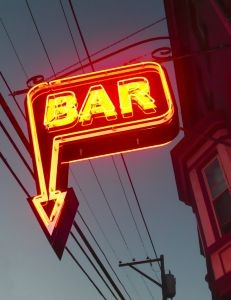These days, most people in Boston are familiar with Uber, Lyft, and possible other so-called ride sharing companies. For those that are not aware, you call for a ride on your smart phone via the company’s app and are told how long it will take for a driver to get to you. You generally have a choice as to whether you want a black car similar to what people take to the airport for business trips or if you want a regular marked taxi, or a private vehicle driven by one of the company’s non-professional drivers.
 As one might expect, this new business model makes licensed taxi drivers and other professional drivers and their respective employers very upset because it was costing them a lot of business. They were also arguing that the new drivers did not need to pass official background checks or show a knowledge of the area and how to get to places around the city. For example, many cab drivers are required to pass a map test whereas many Uber drivers clearly have no idea where they are going without assistance from the customer.
As one might expect, this new business model makes licensed taxi drivers and other professional drivers and their respective employers very upset because it was costing them a lot of business. They were also arguing that the new drivers did not need to pass official background checks or show a knowledge of the area and how to get to places around the city. For example, many cab drivers are required to pass a map test whereas many Uber drivers clearly have no idea where they are going without assistance from the customer.
However, one of the claims that the company made was that Uber and the like would reduce drunk driving incidents and drunk driving crashes in Boston and other cities around the nation. The theory is that people are more likely to get ride from an app while drunk instead of driving, but these same people would be less likely to hail a cab. One of the reasons to support this claim is that the ride sharing app handles the financial transaction including tip, so the passenger does not need to physically pay the driver, as the money is debited from a credit card on file with the app maker.
According to a recent news feature from The Washington Post, one new study suggests that services such as Uber and its competitors are not actually reducing the level of drunk driving in the cities in which they operate. The study discussed was performed by the Oxford University and the University of Southern California (USC).
The study looked at the number of drunk driving related fatal accidents that occurred on weekends and holidays typically associated with people drinking and found that there was no reduction in markets that have ride sharing companies as compared to cities that do not.
There are several reasons researchers believe ride sharing companies are not having the claimed effect on the number of drunk driving accidents. One reason is that there are simply so many fatal drunk driving accidents each year and there are not enough Uber customers to really make a noticeable impact. Another possible interpretation is that people who are intoxicated and call Uber and the same people who were calling a cab before ride sharing existing in their communities. Essentially, this goes back to the argument cab drivers are making that the new companies do not increase the overall number of riders, but simply take rides away from cab drivers.
If you or someone you love has been injured a Boston drunk driving accident, call for a free and confidential appointment at (617) 777-7777.
Additional Resources:
Is Uber reducing drunk driving? New study says no., July 27, 2016, Washington Post, By Frederick Kunkle
More Blog Entries:
Report: Boston Named as Having Worst Drivers in US – Many Drunk Driving Accidents, July 21, 2016, Boston Drunk Driving Accident Lawyer Blog
 Boston Drunk Driving Accident Lawyer Blog
Boston Drunk Driving Accident Lawyer Blog

